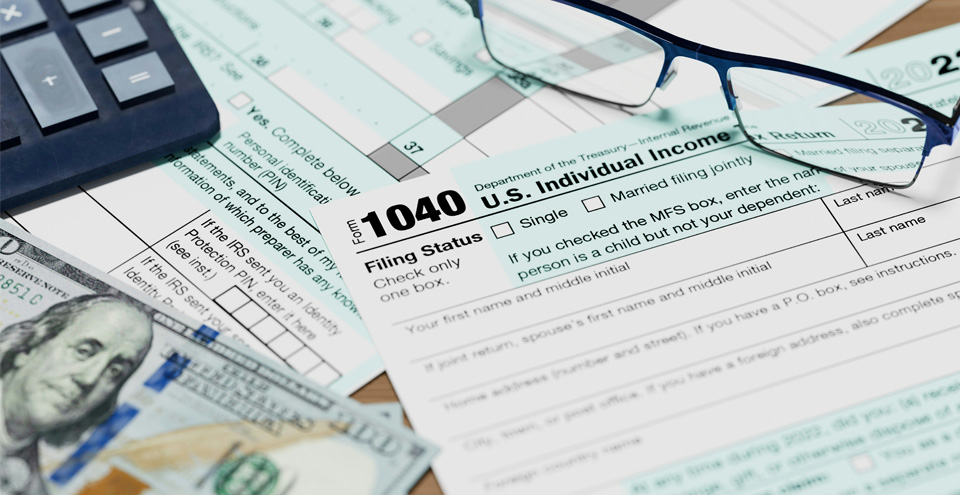Roth IRA and 401(k) accounts were created in 1998. Contributions to Roth accounts are taxed on the front end at ordinary tax rates when made. But withdrawals from these accounts are generally tax-free on the back end. If you began saving for your retirement before 1998, even if you subsequently started contributing to a Roth account, you’ve probably accumulated a significant nest egg in traditional (non-Roth) retirement savings vehicles.
Unlike withdrawals from Roth accounts, most or all of the money you take out of non-Roth plans will be taxed as ordinary income when they’re taken. Whether those amounts are taxable depends on the extent to which you took tax deductions for your contributions.
It might be a smart move to postpone taxes until you retire and then begin taking retirement plan distributions — or not. Since 2010, everyone, regardless of income, has been eligible to convert some or all non-Roth IRA and 401(k) savings into a Roth account. You can also convert 403(b) and 457(b) plan assets into a Roth IRA with the same tax implications. All distributions from those plans are tax-free, assuming you wait at least five years after the conversion before taking them and are at least 59½.
Should you convert your non-Roth accounts into Roth accounts in 2021? Here are some factors to consider.
Tax Hit Today
The catch to executing a Roth conversion is that you face an immediate and potentially hefty tax hit. But under some circumstances, you’ll come out ahead taxwise over the long run. Even if you don’t come out ahead, heirs who inherit your Roth account might benefit. The outcome depends on the prevailing tax environment when they begin tapping into those funds.
Viewing a conversion as a tax risk insurance policy can bring peace of mind. That is, you’ll know that you’re shielded from possible tax hikes. That assurance may be worth a price to you — just as life insurance policy premiums are.
Traditionally, your current tax rate versus your anticipated future tax rate (when you plan to begin drawing down retirement plan assets) is the key factor determining whether a Roth conversion is a good idea. Specifically, if the tax rate that would apply to the conversion amount today is lower than the rate that will apply to your regular retirement income in the future, you may be better off doing a conversion today.
But predicting future tax rates can be challenging. Before you make a decision based on an unknown rate or a higher tax bracket if your earning power is on the rise, find objective support for that belief. What do you see on the horizon that bolsters or refutes your belief about the direction tax rates are likely to take?
Timing of Withdrawals
Another variable to consider when evaluating a Roth conversion is how many years after the conversion you expect to wait before withdrawing funds.
Specifically, retirement plans come with required minimum distributions (RMDs). Previously, the required beginning date (RBD) for RMDs was generally April 1 of the year after the year in which you turn 70½. However, the Setting Every Community Up for Retirement Enhancement (SECURE) Act pushed back the RBD to 72 for individuals who reach 70½ after 2019.
RMDs don’t apply to Roth IRAs while the original owner is alive. After your death, however, beneficiaries of your Roth IRA must take RMDs under the same rules that apply to traditional IRAs.
The tax rules for inherited IRAs recently changed under the SECURE Act. Previously, whoever inherited the IRA had to begin taking RMDs right away, regardless of age. But the RMD amounts were based on the inheritor’s life expectancy. That meant, for example, that a 55-year-old who inherited a conventional IRA might’ve had at least 30 years to stretch out those taxable RMDs.
Under current law, amounts in inherited IRAs must be distributed (and taxed) beginning right away over a 10-year period. (There are a few exceptions to that rule. For example, it isn’t applicable to spouses.)
Estimating the Tax Hit
A good starting point for evaluating a Roth conversion is locating taxable income on your most recent tax return and adding the amount of a traditional IRA you’d like to convert to a Roth account. Marginal tax bracket tables are available on the Internet or from your tax advisor. Use those tables to determine how much incremental tax you’ll pay on the conversion.
To illustrate, suppose you had taxable income of $75,000 in 2020 and you expect to earn roughly the same amount of income in 2021. If you convert $225,000 of traditional IRA funds into a Roth IRA, your taxable income would increase to $300,000 this year. Assuming you’re unmarried, a large portion of the amount you converted would be taxed at 22% and most of the remainder would be taxed at 24%.
Those historically low tax rates were set by the Tax Cuts and Jobs Act (TCJA). But, in 2026, they’re scheduled to expire and return to higher pre-TCJA rates. For example, in the previous example, a large chunk of the converted amount would be taxed at 33% if tax rates increase to pre-TCJA levels. That may or may not actually happen — or they may go even higher. Plus, you also need to consider state income taxes, if applicable.
Talk to a Trusted Professional
You can play “what-if” using online Roth conversion calculators, but your retirement nest egg is too important for this to be a do-it-yourself project. An experienced tax professional understands current tax law and has a handle on what changes are currently in the works. Contact your tax pro to evaluate whether a Roth conversion makes sense in your situation.
PKS & Company, P. A. is a full service accounting firm with offices in Salisbury, Ocean City and Lewes that provides traditional accounting services as well as specialized services in the areas of retirement plan audits and administration, medical practice consulting, estate and trust services, fraud and forensic services and payroll services and offers financial planning and investments through PKS Investment Advisors, LLC.
© Copyright 2021. All rights reserved.
Brought to you by: PKS & Company, P.A.





